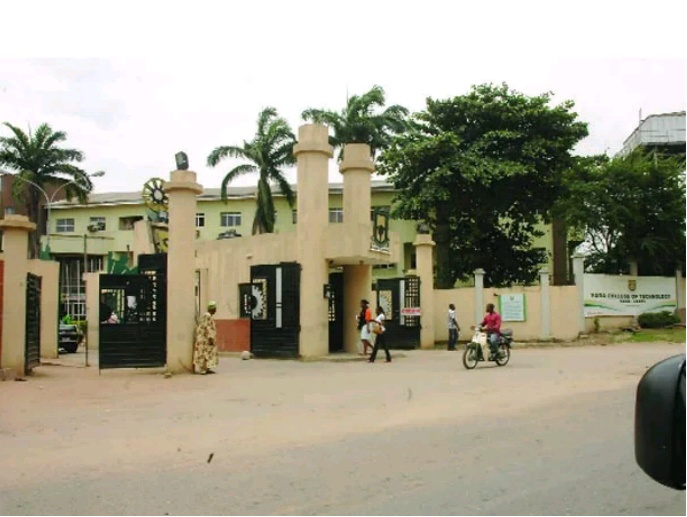BY GABRIEL DIKE
Relief came the way of the embattled Bursar of Yaba College of Technology (YABATECH), Mr. Olu Ibirogba as the National Industrial Court of Nigeria (NICN) sitting in Lagos quashed his suspension by the Governing Council of the institution.
The indefinite suspension of the Bursar by the Chief Ebenezer Babatope led governing council was declared illegal, vindictive and a clear case of victimization by Justice B.B. Kanyip who ordered Mr. Ibirogba to resume work immediately.
Delivering judgement in suit no NICN/LA/582/2013, Justice Kanyip directed the governing council to pay Mr. Ibirogba, his salary, allowances and other perquisites of office intact from the date of the unlawful suspension and when judgment was delivered.
‘’All sums ordered to be paid in this suit including the backlog of the salary and allowances of the claimant are to be paid within 30 days of this judgment’’, Justice Kanyip directed.
Ibirogba, bursar and chief financial officer of YABATECH was suspended by the governing council on October 7, 2013 for accusing the Rector Dr. Kudi Ladipo through a petition to the Economic and Financial Crime Commission (EFCC) of mismanagement of the college funds.
The Bursar took the governing council to the National Industrial Court challenging his suspension and sought five reliefs which were granted in his favour. Justice Kanyip also awarded N250, 000 as general damages and N50, 000 for cost of court action to him.
Ibirogba’s counsel framed two issues for the determination of the court, namely, whether the suspension of the claimant by the defendant (council) is not unconstitutional, wrongful, illegal, and null and void as well as whether the claimant is not entitled to the award of general damages.
The defendant also framed three issues for the determination of the court which are whether the claimant can invoke the jurisdiction of the court to stop the council from subjecting him to discipline, whether Ibirogba’s suspension was contrary to Section 15 (5) of the Constitution, Section 38 (2) of the EFCC Act 2004 and Section 27 (2) of the FOI Act 2011 and whether the claimant is entitled to award of damages considering the circumstances of the case as well as evidence placed before the court.
In resolving the case, Justice Kanyip said the issues involves balancing act on the part of the court of the competing values of the right of an employer to suspend and societal value of not discouraging the fight against corruption.
The judge noted that the argument of the council that Section 27 of the FOI Act cannot protect the claimant because he did not admit giving out information is misconceived and would not amount to treating it with levity.
‘’First, the claimant did not admit to giving out the information, but even if he did, he has the defence of the relevant provisions of the FOI and EFCC Acts. In other words, the argument was an alternative argument. In either case, I am of the firm opinion that the policy prescription of the EFCC and FOI Acts in protecting whistleblowers is one that courts must protect if the higher demand of the fight against corruption is to be met in the country,’’ Justice Kanyip stated.
In the 18-page judgment, Justice Kanyip averred that the governing council erred by querying and suspending Ibirogba because he passed the information to some persons who petitioned the EFCC of the alleged fraud in the college.
Justice Kanyip’s words: ‘’It is accordingly my finding and hence holding that the defendant did not act reasonably and on good ground in suspending the claimant. The suspension is accordingly mala fide, unfair, vindictive, a clear case of victimization.
Credit : The Sun







